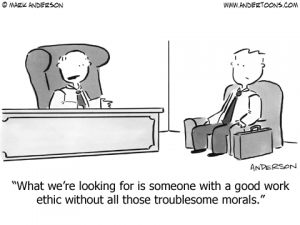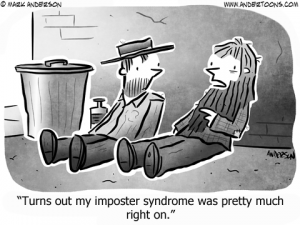 The March 8, 2018 issue in the Seattle Times presents the story of a former Coast Guardsman who injured his leg during a fall in 2011. He went to the Puget Sound VA and had surgery on his leg.
The March 8, 2018 issue in the Seattle Times presents the story of a former Coast Guardsman who injured his leg during a fall in 2011. He went to the Puget Sound VA and had surgery on his leg.
After having excruciating pain following the surgery and having three more surgeries, he finally went to a private doctor.
The doctor determined that the VA surgeon had inadvertently pushed a surgical screw about a centimeter into a nerve bundle, causing him chronic and excruciating pain. Despite multiple X- rays by the private physician showing the screw, the VA doctor denied that he had done this and denied medical negligence. However due to the delay in getting the proper care, the lower leg had to be amputated.
In this case, due to a donation to an organization that uses amputated limbs to train rescue dogs, the limb was still available. A pathologist that examined the leg found that the screw had indeed been pushed into the nerves.
UNDENIABLE EVIDENCE IS “SILLY” …
 The VA doctor, in the face of this evidence continued to deny any responsibility and claimed that the evidence by the private doctor and the pathologist was “silly”.
The VA doctor, in the face of this evidence continued to deny any responsibility and claimed that the evidence by the private doctor and the pathologist was “silly”.
Yet, in pretrial mediation the VA agreed to pay the individual $1.75 million to “avoid further litigation. $1.75 million to an individual who had been in pain for years, lost his job, lost his wife and finally had his lower leg amputated.
In the final blow, the Justice Department had rejected the settlement, offering $1.4 million and denying any wrongdoing by the VA. Exhausted, the individual accepted the settlement.
The Orthopedic Surgeon and his management continue to work for the VA.
THE ORGANIZATION’S OPERATING CULTURE …
 We have all read about the horrors outlined by those who have had difficulties with the VA.
We have all read about the horrors outlined by those who have had difficulties with the VA.
Those who manage the VA, from the top down are focused on avoiding accepting any responsibility for errors made by them and those who report to them.
In this case it was a leg; in others it has been life and death. But always, admitting an error is to be avoided at all costs.
But what about when it isn’t life or death, but the conduct of your company or business. Like the VA, rarely do the character flaws of a single individual fully explain corporate misconduct.
More typically, unethical business practices involve the tacit, if not explicit cooperation of values, attitudes beliefs and behavioral patterns that define an organization’s operating culture.
Ethics and integrity is as much an organizational as a personal issue.
Managers who fail to provide proper leadership and fail to institute systems and behaviors that insure ethical conduct are as much responsible for those who benefit directly from the lack of integrity of the company.
NEW FEDERAL SENTENCING GUIDELINES …
 Executives and managers who ignore ethical behavior run the risk of personal and corporate liability in today’s increasing tough legal environment. New federal sentencing guidelines are increasingly recognizing the organizational and management roots of unlawful conduct by members of the organization.
Executives and managers who ignore ethical behavior run the risk of personal and corporate liability in today’s increasing tough legal environment. New federal sentencing guidelines are increasingly recognizing the organizational and management roots of unlawful conduct by members of the organization.
We see and have seen these issues in companies ranging from the largest to the smallest entrepreneurial business. Consider the recent Wells Fargo fiasco.
 Several years ago, Wells Fargo decided it was not doing enough cross-selling, Cross-selling means getting customers who use one service, such as checking, to use other services, such as savings or credit cards.
Several years ago, Wells Fargo decided it was not doing enough cross-selling, Cross-selling means getting customers who use one service, such as checking, to use other services, such as savings or credit cards.
Wells Fargo developed a specific strategy to encourage cross-selling, which was to involve its employees in telling customers about other products and services. In order to encourage employees to support the program, Wells Fargo employed the strategy of providing incentives to employees who succeeded at cross-selling.
WHERE EVERYTHING WENT WRONG …
 This is where everything went wrong. Employees not only responded to these incentives by cross-selling, they manufactured fake accounts in the names of existing Well Fargo customers.
This is where everything went wrong. Employees not only responded to these incentives by cross-selling, they manufactured fake accounts in the names of existing Well Fargo customers.
Some customers figured this out, but many didn’t and ended up paying fees on accounts they didn’t even know they had.
The problem was huge. In attempting to correct the problem the company fired 5,300 employees including its CEO, John Stumpf.
The Wells Fargo mess teaches a clear lesson which is that you get what you pay for.
Specifically, you can talk yourself blue in the face about ethics, as many Wells Fargo managers did, but you cannot send employees a clearer signal than their paycheck.
ALL ALMOST ALWAYS IGNORED THIS …
 The first reason this is important is that when organizations think about creating an ethical culture, they almost always ignore the organization’s reward system. They print codes of conduct, mandate training and establish ethics hotlines. But if you are rewarding the wrong things, you will get the wrong behaviors.
The first reason this is important is that when organizations think about creating an ethical culture, they almost always ignore the organization’s reward system. They print codes of conduct, mandate training and establish ethics hotlines. But if you are rewarding the wrong things, you will get the wrong behaviors.
 This is as true of the teller at your local branch bank as it is of the top levels of an investment bank. Organizations signal what they really care about through their reward systems. Remember that the one corporate document every employee reads is their paycheck.
This is as true of the teller at your local branch bank as it is of the top levels of an investment bank. Organizations signal what they really care about through their reward systems. Remember that the one corporate document every employee reads is their paycheck.
The importance of this lesson goes well beyond ethics. The idea is that you can get better performance out of employees if you abandon pay for performance in favor of one or another strategy that rewards “the whole person” and not just the paycheck. The peak of this phenomenon is, a veritable tangle of cross cutting evaluations and peer-enforced group-think.
WHAT BEHAVIORS YOU “REWARDING”?
 The Wells Fargo case shows once again the power of paying for performance. Unfortunately, it also showed the power of paying for performance when you pay for the wrong performance.
The Wells Fargo case shows once again the power of paying for performance. Unfortunately, it also showed the power of paying for performance when you pay for the wrong performance.
The performance systems of most organizations are the jealously guarded hostages of either executives or in larger companies, HR.
Executives who want to run truly ethical – and effective – organizations need to take responsibility for ethical behavior before engaging in silly talk about the greater good.
You will have a lot better chance of avoiding the sort of ethics crisis that Wells Fargo has undergone if you effectively manage your organization’s reward system.
WE DISCOVERED SOMETHING …
 At the other end of the scale, Revitalization Partners was recommended by a bank to assist one of their clients that did not have any financial management.
At the other end of the scale, Revitalization Partners was recommended by a bank to assist one of their clients that did not have any financial management.
In attempting to establish proper systems, we discovered that the company was placing funds in another bank, which was in direct violation of their loan agreement.
When challenged on this issue, their response was that they were worried that the bank would stop lending to them. Additionally, they were signing certification documents that they knew were not correct.
Because of their unethical behavior, the bank elected to ask the company to find a new bank and the company is no longer a client of RP.
Unethical behavior and lack of integrity has a cost. And it is often not only the managers and executives that pay the price.
We specialize in improving the operational and financial results of companies and providing hands-on expertise in virtually every circumstance, with a focus on small and mid-market organizations.
Whether your requirement is Interim Management, a Business Assessment, Revitalization and Reengineering or Receivership/Bankruptcy Support, we focus on giving you the best resolution in the fastest time with the highest possible return.


